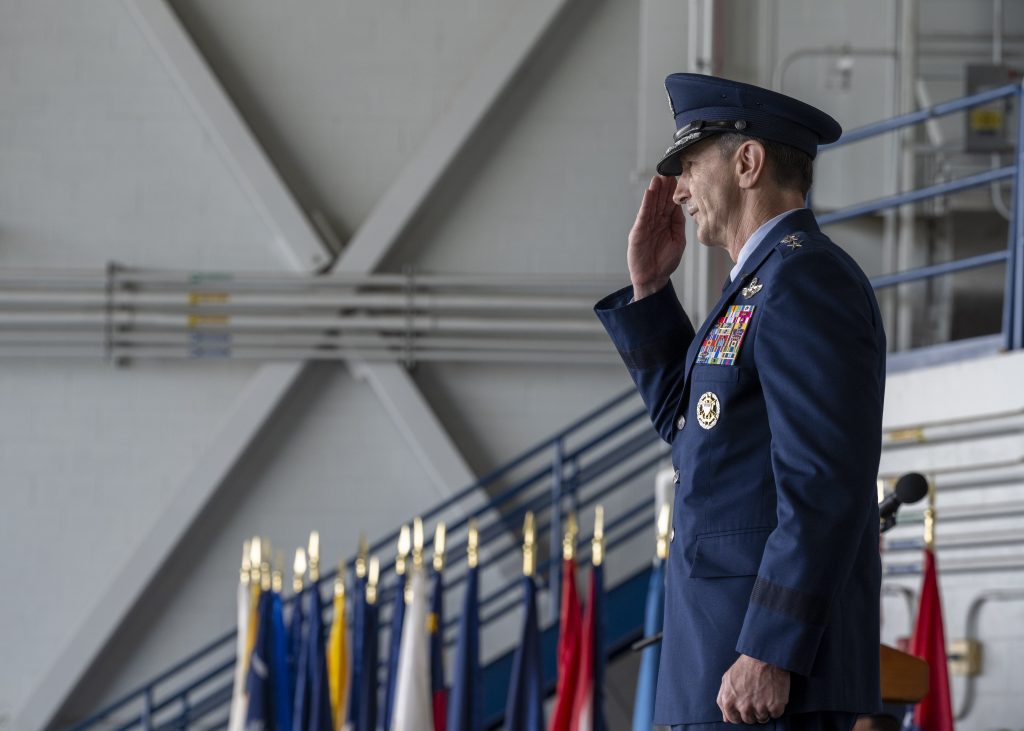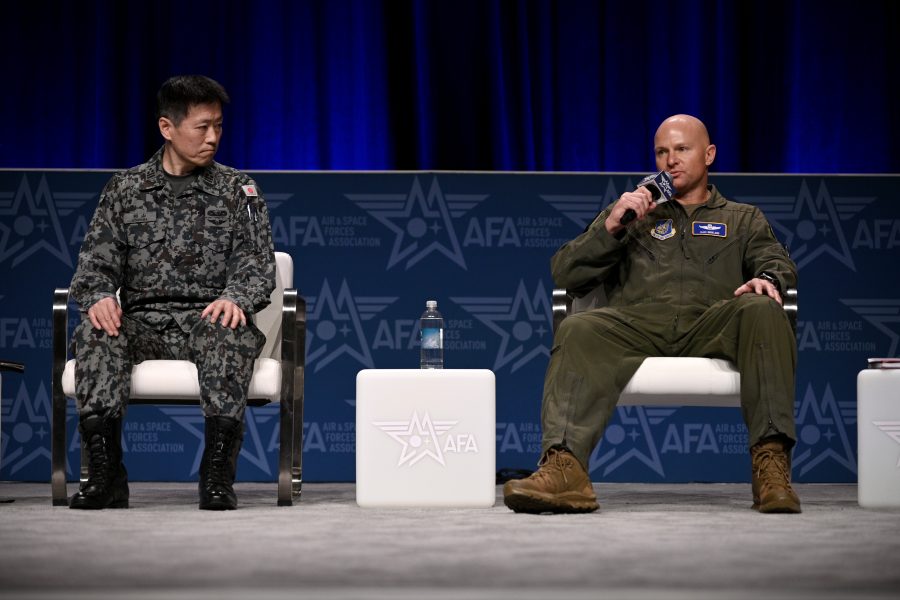AURORA, Colo.—As part of its re-optimization effort, the Air Force is planning to implement more large-scale exercises to improve readiness. And that will start with a major one next year in the Indo-Pacific, leaders said at the AFA Warfare Symposium.
“We’re targeting fiscal year 2025 for the first sort of run at a large multi-combatant command supported [exercise] … and we’re looking to do that in conjunction with a single AOR targeted at INDOPACOM,” Chief of Staff Gen. David W. Allvin said Feb. 12.
For the new commander of Pacific Air Forces, Gen. Kevin B. Schneider, it will be an especially major undertaking.
“I’m encouraged that the Department of the Air Force identified that, is committing resources to make that happen,” Schneider told reporters. “To do something with this scope, with this scale that we envision, it will take the weight of the Department of the Air Force and the resources.”
Such an exercise will be crucial in testing and preparing PACAF for the possibility of conflict with the likes of China, Schneider added.
“When I look at crisis, conflict, and contingencies … there’ll be a huge demand for INDOPACOM as the warfighter, and PACAF as the component,” Schneider said. “And the rest of the joint force will have tremendous demand back to our services for resources, equipment, personnel, capabilities.”

While such exercises are “not always inexpensive endeavors,” Schneider stressed their importance for deterrence. And his chief of staff Col. David Berkland later indicated in a panel discussion that the 2025 exercise will not be a one-off event.
“We’re going to start to build up to more complex, kind of high order of magnitude-type exercises,” Berkland said. “So, you might not be able to count as many happening throughout the year, but the ones that we do are going to be bigger, more intense, and more valuable, I think, for getting us to maintain that level of overmatch at the high end of combat.”
Larger exercises could also help foster broader multilateral alliances as commanders and troops spend longer periods working more closely together. In recent years, there has been a surge in interest from nations worldwide in contributing to these missions. The U.K.’s Royal Air Force joined a PACAF exercise in December, marking its first participation in that event. Canada has also unveiled its Indo-Pacific strategy, and other countries like Australia, Singapore, and France have likewise demonstrated a growing commitment by participating in multilateral exercises in the region recently.
South Korea and Japan have also played pivotal roles in these exercises. Following last year’s trilateral agreement at Camp David between Washington, Seoul, and Tokyo, the three nations have upped their collaboration through a series of multi-domain exercises.
“This kind of effort is vitally important for us,” said Col. Kimotoshi Sugiyama, commander of Space Operations Group for the Japan Air Self Defense Forces. “We’re headed in the right direction.”
The close cooperation comes in the face of increasing aggression from China. President Xi Jinping continues to say he will push to “unify” Taiwan and China, with many fearing conflict as a result. Meanwhile, Beijing has invested heavily in nuclear weapons, space, and other military technologies and at times curtailed military-to-military communications.
The People’s Liberation Army Air Force has also conducted more and more aggressive and unprofessional intercepts of U.S. and allied aircraft in the region.
“Our pilots and our air crews are going to continue to do what they’ve done all along, and that is to conduct themselves professionally, safely, and do everything we can to prevent a dangerous escalation from occurring over international airspace,” Berkland said.
On top of all that is the escalating threat of North Korea. Col. Jong-seo Park, the South Korean embassy’s air attaché, pointed to Pyongyang’s expanding nuclear and conventional capabilities and its deepening ties with Russia as causes for concern.
“Russia and North Korea, their ties are being strengthened,” Park said. “North Korea provided military support on ballistic missiles and the drones, and any kind of artillery shells and in return, Russia is providing the military and economic capabilities (to Pyongyang).”
However, Schneider said ties between China, Russia, and North Korea will never match the level of deepening and broadening partnerships the U.S. is fostering with its allies in the Pacific.
“Those relationships, alliances, and partnerships can only be envied in Beijing, Moscow and Pyongyang and they could never replicate anything near that,” Schneider said. “Our ability to come together as teams, and work together as teams for a purpose, is an amazing strength and one that we continue to enjoy. That’s why my predecessors and I pay tremendous focus into maintaining the building and increasing the capability of our alliances and relationships at all levels.”

